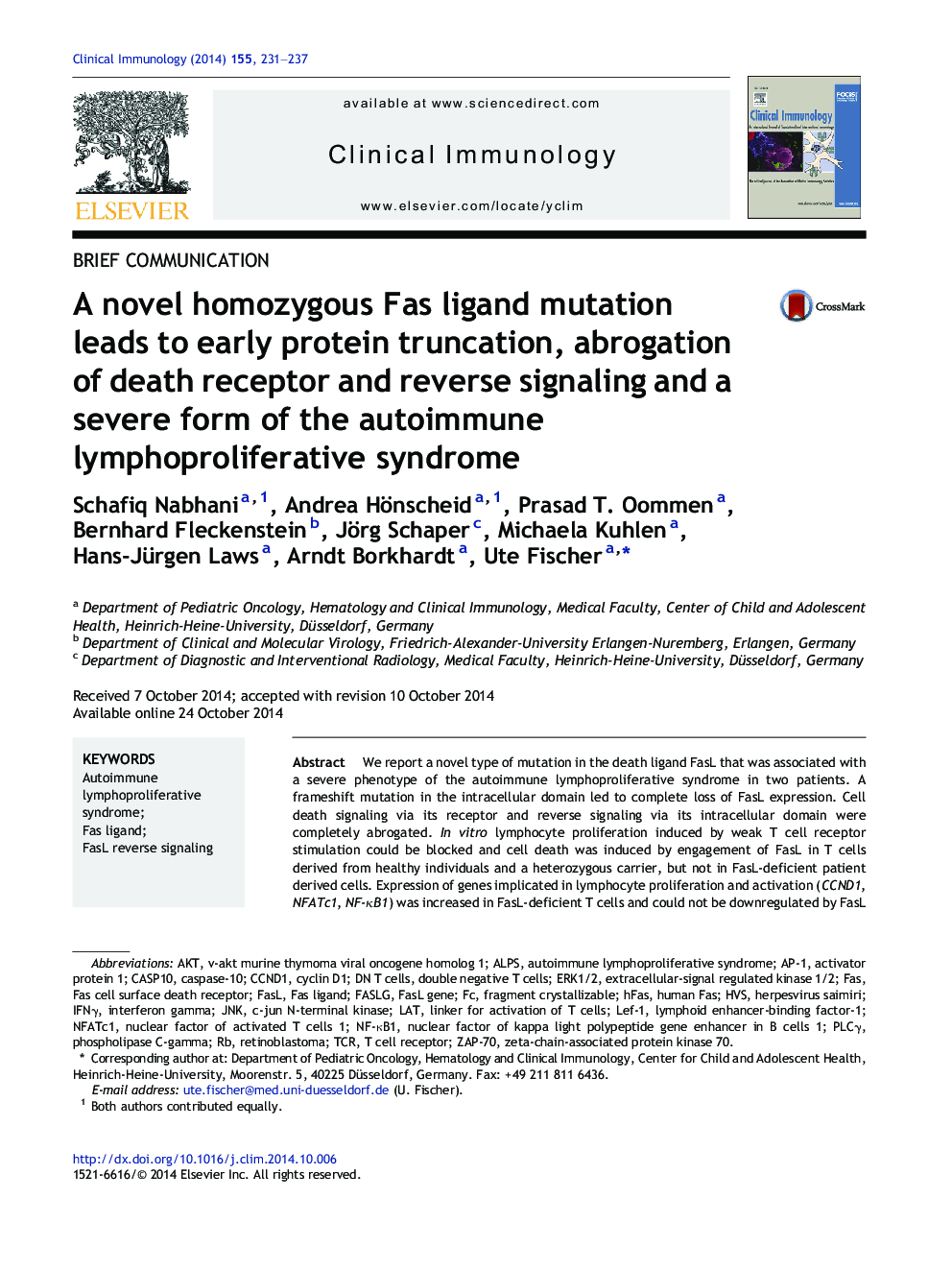| Article ID | Journal | Published Year | Pages | File Type |
|---|---|---|---|---|
| 3256856 | Clinical Immunology | 2014 | 7 Pages |
•We identified a novel type of FasL mutation in two patients causing a severe phenotype of ALPS.•A frameshift in the intracytoplasmic domain of FasL led to abrogation of protein expression and deficient FasL mediated reverse signaling.•Our data suggest a contribution of FasL reverse signaling to the clinical phenotype of ALPS.
We report a novel type of mutation in the death ligand FasL that was associated with a severe phenotype of the autoimmune lymphoproliferative syndrome in two patients. A frameshift mutation in the intracellular domain led to complete loss of FasL expression. Cell death signaling via its receptor and reverse signaling via its intracellular domain were completely abrogated. In vitro lymphocyte proliferation induced by weak T cell receptor stimulation could be blocked and cell death was induced by engagement of FasL in T cells derived from healthy individuals and a heterozygous carrier, but not in FasL-deficient patient derived cells. Expression of genes implicated in lymphocyte proliferation and activation (CCND1, NFATc1, NF-κB1) was increased in FasL-deficient T cells and could not be downregulated by FasL engagement as in healthy cells. Our data thus suggest, that deficiency in FasL reverse signaling may contribute to the clinical lymphoproliferative phenotype of ALPS.
